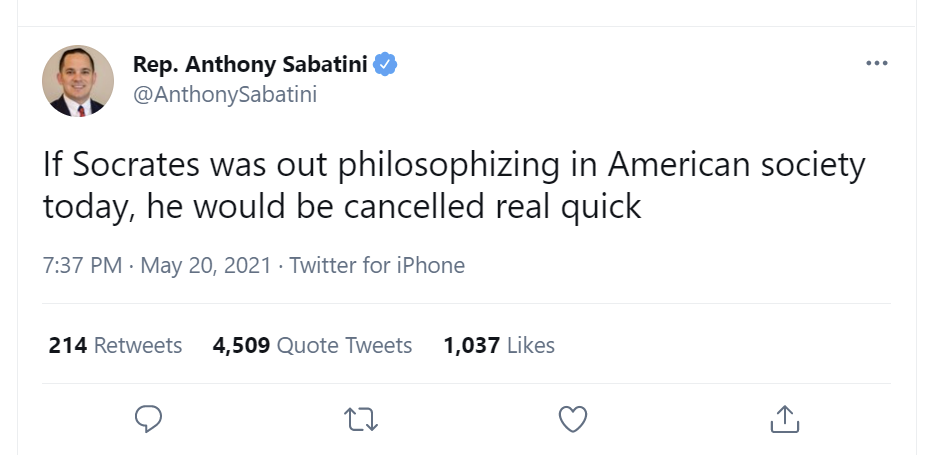Blog

Cancel Culture Is Nothing New – Just Ask Socrates
Classics buffs and anyone who remembers what they learned in high school had a good laugh on Twitter on May 21 when a Florida state representative tweeted this hot take:
If Socrates was out philosophizing in American society today, he would be cancelled real quick
— Anthony Sabatini (@AnthonySabatini) May 20, 2021
As Twitter users were all-too-happy to point out, Socrates WAS cancelled. In fact, he was put to death for spreading unpopular views.
It’s a humorous reminder that “cancel culture” is nothing new. Societies have been punishing and silencing those with unpopular views for all recorded history.
American free speech laws are a big step in the right direction, and we can celebrate that—unlike Socrates—Americans won’t be forced to drink hemlock if some politician thinks our views are corrupting the youth. However, free speech laws don’t protect us from retribution from society.
Cancel culture is nothing new in American society either. During the 40s and 50s, rumors that someone might be a Soviet sympathizer could end their carrier, no matter how spotty the evidence. As recently as the 80s and 90s, coming out as gay or lesbian often resulted in devastating societal ostracization.
So why all the talk about cancel culture now? There are perhaps two reasons for this:
The first is social media. Up until very recently, unless you were a journalist or public figure, your reach was limited to your immediate network. Media outlets, politicians, and celebrities were really the only ones who could lead large-scale “cancelling.” Now, someone anywhere in the country can see that a literary agent has joined Parler and Gab, get others to join them in tweeting about it, and get her fired.
Every day people can instantly become the subjects of national ire—like the “smirking” high school student or the baker who refuses to bake a cake for a gay wedding. False narratives or way overblown reactions can snowball quickly, ruining people’s lives who have no chance at defending themselves.
The second reason is that the targets have shifted. Conservatives are making a lot of noise about cancel culture now because they perceive themselves, with justifiable cause, as the primary targets. That’s a fairly recent development, and as history shows, the targets will shift again.
It’s time to break the cycle. Let’s engage with views we disagree with instead of blacklisting the view holders. Let’s speak up for those being unfairly attacked. And let’s make sure as a society that we’re playing by rules based on true equity and justice, not revenge and power struggles.
The past is filled with examples of people who have been cancelled for holding unpopular views—but the future doesn’t have to be. Maybe with enough work, we can create a society where Socrates would finally be safe.
